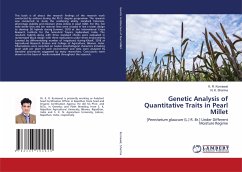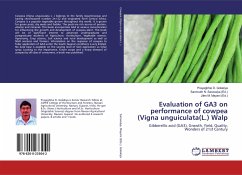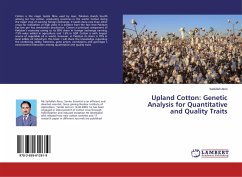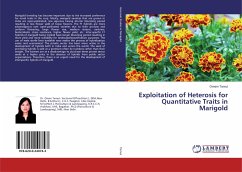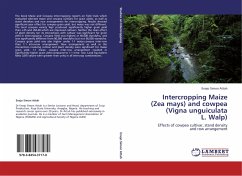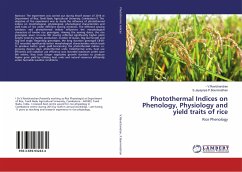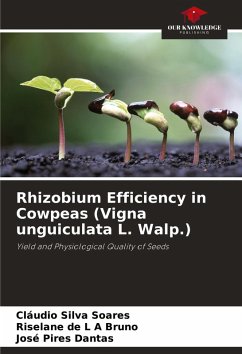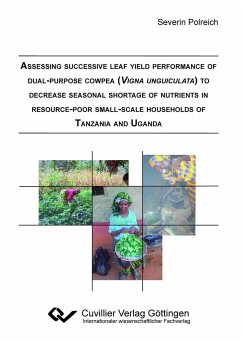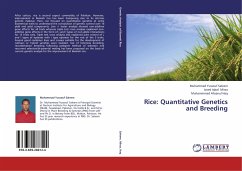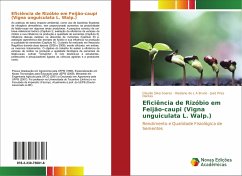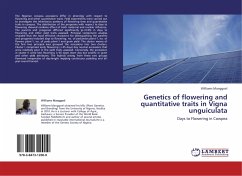
Genetics of flowering and quantitative traits in Vigna unguiculata
Days to Flowering in Cowpea
Versandkostenfrei!
Versandfertig in 6-10 Tagen
32,99 €
inkl. MwSt.

PAYBACK Punkte
16 °P sammeln!
The Nigerian cowpea accessions differ in phenolgy with respect to flowering and other quantitative traits. Field experiments were carried out to investigate the inheritance patterns of flowering time and quantitative traits in cowpea. The distribution of the progenies with respect to days to flowering showed combine effect of both maternal and nuclear influence. The parents and progenies differed significantly (p0.05) in days to flowering and other yield traits assessed. Principal component analysis revealed that the most effective characters for distinguishing the parents and progenies includ...
The Nigerian cowpea accessions differ in phenolgy with respect to flowering and other quantitative traits. Field experiments were carried out to investigate the inheritance patterns of flowering time and quantitative traits in cowpea. The distribution of the progenies with respect to days to flowering showed combine effect of both maternal and nuclear influence. The parents and progenies differed significantly (p0.05) in days to flowering and other yield traits assessed. Principal component analysis revealed that the most effective characters for distinguishing the parents and progenies included days to flowering, no. of peduncles plant-1, no. of flowers plant-1, no. of pods plant-1 and grain yield. The cluster means of the first two principal axes grouped the accessions into two clusters. Cluster I comprised early flowering (45 days) day neutral accessions that were relatively poor in the yield traits assessed. Conversely, the accessions in cluster II were late flowering (45 days) short day but prolific in grain and other yield attributes. The hybrids arising from these two groups flowered irrespective of day-length implying continuous podding and all-year-round harvest.



